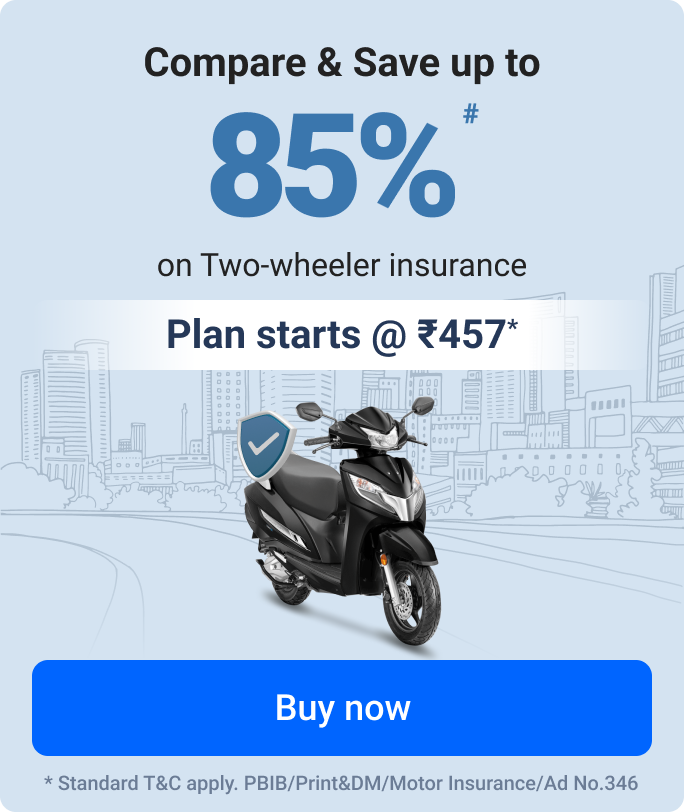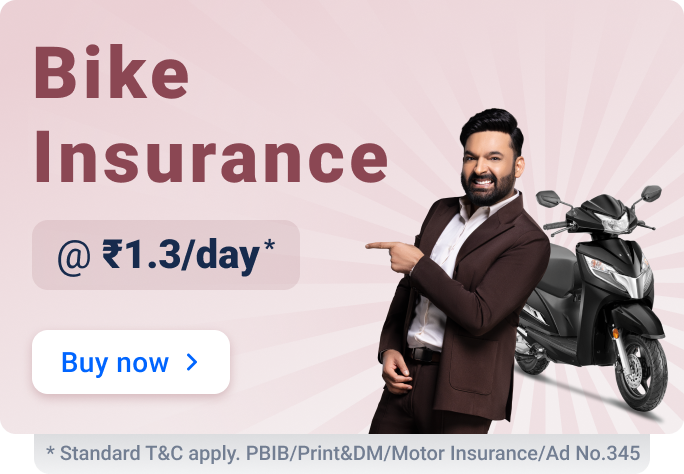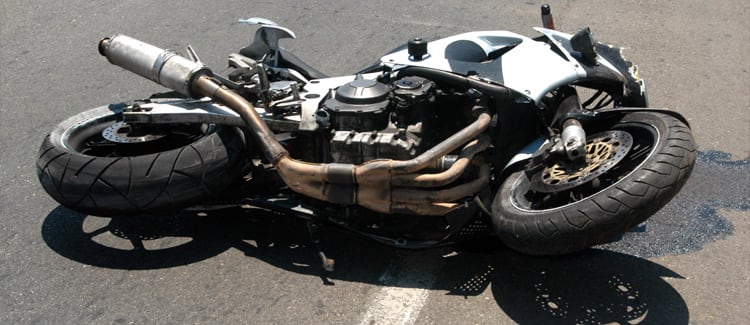How to Check and Clear Pending e-Challans for Your Bike?
Riding a bike offers freedom and convenience, but it also comes with responsibilities, including following the traffic rules and staying in law. Any traffic violation can result in an e-challan issued by traffic authorities. Therefore, as a responsible bike owner, you must stay informed about any pending e-challans and avoid further complications. This article will guide you through checking and clearing pending e-challans for your bike.
What is a Bike e-Challan?
A bike e-challan is a digital challan issued by the traffic authorities/police for any violation committed while riding a motorcycle. It is generated electronically and sent to the registered vehicle owner online. This e-challan often includes details like the violation committed, the location, the date and time of the offence, and the fine amount.
On Which Ground is a Bike e-Challan Issued?
A bike e-challan can be issued for several reasons, including your driving behaviour, not having documents, and other traffic violations. Let's explore the examples of these reasons which leads to the issuance of bike e-challan by the traffic police:
-
Driving Behaviour Violations
Here are some of the common driving behaviour violations committed by a bike rider:
- Jumping Red Lights
- Overspeeding
- Riding Without a Helmet
- Not Riding in a Dedicated Lane
- Using a Mobile Phone While Riding
- Triple Riding
- Parking Violations
- Riding Under the Influence of Intoxicated Substances
-
Documentation Violations
Other than these, here are some of the documentation violations which can directly lead to an e-challan:
- Riding without a Valid Driving License or Registration: Not holding a valid DL while riding a bike or riding an unregistered motorcycle can lead to heavy penalties by the traffic police.
- Riding an Insured Two-wheeler: As per the Motor Vehicle Act of 1988, all two-wheelers should be insured with at least a third-party bike insurance policy. Not having the right bike insurance policy is one of the major reasons for an e-challan. If your bike insurance policy has expired, or you don't have one, you are liable for a fine of ₹ 2,000. This highlights the importance of timely bike insurance renewal.
-
Other Violations
Here are a few other violations that lead to the issuance of an e-challan for your bike:
- Using Horns in a No-Honking Zone
- Causing Obstruction in the Middle of Lane
- Refusing to Provide Documents to the Traffic Police.
How to Check Your Bike e-Challan?
Checking your bike e-challan is quite simple. Several platforms on the internet offer this service to check your bike e-challans. Here is a detailed guide:
- Visit the Vahan Portal: Go to the official Vahan website (you can search for it online).
- Enter Vehicle Details: Provide your vehicle's registration number.
- Complete the Captcha: Fill in the captcha code for verification.
- View Details: Click on "Show Details." This will display information about any pending challans, vehicle blacklist status, and FIR details (if applicable).
Another simple method to check your bike challan is through Policybazaar.com. To do this, visit the 'Check Bike Challan Status Online' page. In the required field, enter your bike number or bike's registration number along with your full name & mobile number. Lastly, you can see all the details related to the bike, including its challan, RC details, bike insurance expiry date, and the bike's PUCC details.
Checking if Your Vehicle is Blacklisted Due to Pending e-Challans
Keeping track of your vehicle's status is crucial, especially regarding pending e-challans. A vehicle can be blacklisted for various reasons, including unpaid fines. If your vehicle is blacklisted, you can typically find the following details:
- Blacklisted States: The number of states where the vehicle is blacklisted.
- Complaint Type: The specific reason for the blacklisting.
- Complaint Location: Where the complaint was filed.
- FIR Details: Information regarding any associated FIR.
How to Pay Your e-Challan Online?
Once you have confirmed a pending e-challan bike, you must pay it promptly. Here are the common methods for paying e-challan:
- Online Payment: The Parivahan portal offers online payment options. You can use debit cards, credit cards, net banking, or UPI to pay for the e-challan Parivahan. Here is the process to address the question of how to pay e-challan online for a bike or how to pay e-challan online:
- Visit the eChallan Portal: Go to the official eChallan website (search online).
- Select Online Payment: Click on the "Pay Online" option.
- Enter Details and Get Details: Enter your vehicle registration number, complete the captcha, and click "Get Detail."
- Pay Online: Review the pending challans and pay them using available online payment methods.
- Offline Payment: Some traffic departments still offer offline payment options. This usually involves visiting a designated traffic police station or bank branch and paying the fine in cash or through a demand draft.
What if I Don't Pay My e-Challan for My Bike?
Ignoring an e-challan bike can lead to serious consequences. What if I don't pay e-challan for my bike? Here is what could happen:
- Increased Fine Amount: The fine amount may increase if you do not pay within the stipulated time.
- Legal Action: Repeated violations or non-payment of fines can lead to legal action, including court summons and even the digital impounding of a driving license.
- Difficulty in Vehicle Transactions: You might face difficulties in selling your bike or renewing its registration if you have pending e-challans.
Paying E-Challans After the Due Date
How to pay e-challan after due date? If you have missed the due date, it is crucial to contact the traffic police department immediately. They can guide you on paying the fine, which might involve additional penalties.
Key Takeaway!
Regular checks are required for pending bike e-challans on the official Parivahan website or your state's traffic police website. Also, you must pay for your e-challan bike promptly online or offline. Do not ignore them, as it can lead to increased fines and legal consequences. By staying informed and proactive, you can ensure a smooth and hassle-free riding experience while adhering to traffic regulations.
^The renewal of insurance policy is subject to our operations not being impacted by a system failure or force majeure event or for reasons beyond our control. Actual time for a transaction may vary subject to additional data requirements and operational processes.
^The buying of Insurance policy is subject to our operations not being impacted by a system failure or force majeure event or for reasons beyond our control. Actual time for transaction may vary subject to additional data requirements and operational processes.
#Savings are based on the comparison between highest and the lowest premium for own damage cover (excluding add-on covers) provided by different insurance companies for the same vehicle with the same IDV and same NCB.
*TP price for less than 75 CC two-wheelers. All savings are provided by insurers as per IRDAI-approved insurance plan. Standard T&C apply.
*Rs 538/- per annum is the price for third party motor insurance for two wheelers of not more than 75cc (non-commercial and non-electric)
#Savings are based on the comparison between the highest and the lowest premium for own damage cover (excluding add-on covers) provided by different insurance companies for the same vehicle with the same IDV and same NCB.
*₹ 1.5 is the Comprehensive premium for a 2015 TVS XL Super 70cc, MH02(Mumbai) RTO with an IDV of ₹5,895 and NCB at 50%.
*Rs 457/- per annum is the price for the third-party motor insurance for private electric two-wheelers of not more than 3KW (non-commercial).The list of insurers mentioned are arranged according to the alphabetical order of the names of insurers respectively.Policybazaar does not endorse, rate or recommend any particular insurer or insurance product offered by any insurer. The list of plans listed here comprise of insurance products offered by all the insurance partners of Policybazaar. For complete list of insurers in India refer to the Insurance Regulatory and Development Authority of India website www.irdai.gov.in



























